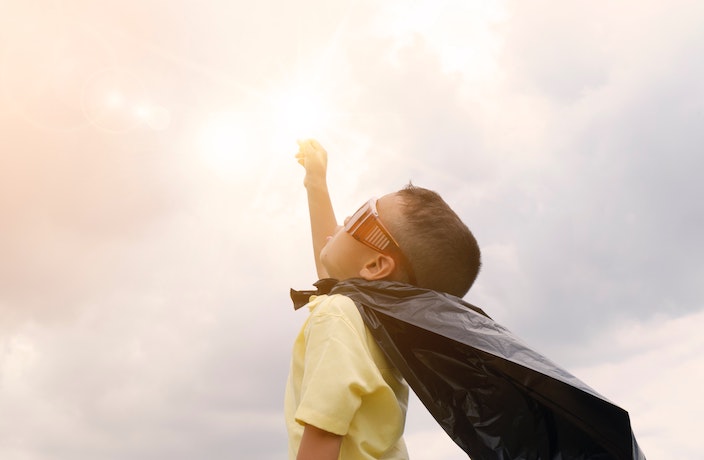
There are a few life-changing books that you read, or ones with words stay with you. For me, Sheryl Sandberg's Option B: Facing Adversity, Building Resilience and Finding Joy, was one of those books. I was a fan of her first book Lean In (despite much controversy), but this one blew me away. Unlike her first book, in this one, she is openly vulnerable and raw with her pain in coping with her husband’s death. It made me admire her even more; this ability to see past her pain and use it to write a book and start a foundation to help others (see Option B). You might think okay, what person doesn’t face adversity, she’s a famous Silicon Valley icon, so she probably had all the support she needed, and more. However, I don’t think anything prepares you for something you didn’t expect or want.

Image via OptionB
Sandberg's husband, Dave Goldberg, passed away unexpectedly while he was running on a treadmill during a vacation to celebrate a friend’s 50th birthday. His heart gave out, and he died almost instantly. In the book, she shares her shock, and how she had to get on with ‘Option B’ for her life, when ‘Option A’ simply wasn’t available anymore, and she had no control over this. She also had to teach, nurture and love her kids through this time. It was this point that attracted me the book because (aside from just admiring Sandberg and her achievements) I’m somewhat of a pragmatist and like to be prepared for things. A book about raising resilient kids appealed to me. As it turns out, the book was even more impactful as I found Sandberg’s courage, resilience, honesty and altruism inspiring.
Why does this matter? Well, things seem to be happening to people around me. This includes losing jobs, sudden relocations back home, marriages breaking up, spouses passing away and young people with terminal diseases. Plus, I see kids getting into trouble at a much younger age than you would think they could get into ‘that type’ of trouble. It can be disheartening. We are also at that stage of thinking about providing for our children in our ‘absence,’ and it is inevitable that when you go through this process, you note the fragility of life and its uncertainties. Sure, you could say its cliché, ‘this happens when you get older.’ But, if things detract from Option A, I honestly don’t know if, like Sandberg, I’m prepared for or want to go with Option B. I’m not saying you can anticipate everything, heck parenting is about as unpredictable as life gets. However, while having a plan helps, raising resilient kids who can cope with anything is probably the way to go in these uncertain times. By focusing on that instead of well-laid plans (because we all know what can happen to those), perhaps I can feel less anxious about my kids’ future well-being, whether or not I am around.
As an example, when we first relocated to Shanghai, I was surprised (and slightly amused) that along with medical evacuation and food safety, infidelity was an orientation topic. Three years on, I’m no longer shocked (or amused). Having observed the effects unexpected scenarios can have on children, I know that I cannot protect them from what happens, but I can teach them how to cope with it. So, how do we raise resilient kids?

It might be a little formulaic, but as a start, pediatrician Kenneth Ginsburg who specializes in building kids’ resilience has developed the 7 C’s Model: Competence, Confidence, Connection, Coping, Control, Character and Contribution. In this, the points that I particularly noted were:
- Children become competent by developing skills that allow them to trust their judgment and make responsible choices.
- Children do not build confidence by being told they are special or precious.
- Connections to civic, educational, religious and athletic groups can increase a young person’s sense of belonging and safety in a wider world.
- Children need a fundamental sense of right and wrong to become stable adults; this is the foundation of their character.
- Children gain a sense of purpose by seeing the importance of their contributions, and this can motivate them to improve the world.
- Kids who can distinguish between a crisis and a relatively minor setback can avoid unnecessary anxiety and learn to cope better with situations.
- Finally, when children’s decisions affect their lives, they learn that they have control.
To read more on this and gain your insights, see the Option B website.
As much as we love it, Shanghai can be a difficult place to live. In my opinion, this website is a valuable resource to assist with overcoming adversity ranging from divorce, abuse, incarceration to LGBTQ rejection. To Sandberg’s credit, it is also a true testament and hope to the good that can come out of an Option B, even if it is not what we wanted.
[Title image via Pexels]
For more Dragon Mama, click here.


















